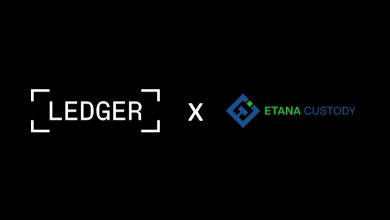Banking on blockchain: The innovations that have emerged from financial firms

Are banks quietly joining in on the blockchain revolution? We take a look into some of the patented projects using blockchain submitted by major banking institutions.
Banking and digital currencies rarely see eye-to-eye owing to the fundamental concept of money on the blockchain which sets out to debank finance. Despite this, several major banks across the globe have taken the innovation of blockchain into their ranks and have either patented or produced new methods and means of using the technology to offer their customers novel features.
In this, we will be exploring innovations using blockchain technology that have emerged from five major banking institutions.
JPMorgan & Chase
This massive American banking institution has expressed interest in using blockchain on multiple occasions and has applied for patents for innovations more than once. In this, we look at the two patent applications and the ideas revolving around them.
In May of this year, the US Securities and Exchange Commissions (SEC) released the application that the bank had submitted in October. In this patent, JPMorgan was hoping to patent a system which would be using blockchain technology to record transactions and store data in a unique way.
The company gave a summary of the patent, as outlined in the application:
“In one embodiment, a method for processing network payments using a distributed ledger may include: (1) a payment originator initiating a payment instruction to a payment beneficiary; (2) a payment originator bank posting and committing the payment instruction to a distributed ledger on a peer-to-peer network; (3) the payment beneficiary bank posting and committing the payment instruction to the distributed ledger on a peer-to-peer network; and (4) the payment originator bank validating and processing the payment through a payment originator bank internal system and debiting an originator account.”
JPMorgan expressed at the time that using distributed ledger would be beneficial because it “provides a practically immutable, verifiably true audit trail”. They also said that this system could possibly cover a number of features including “a payment originator bank; a payment beneficiary bank; a peer-to-peer payment network, wherein the payment originator bank and the payment beneficiary bank are participant members of the peer-to-peer payments network; and a distributed ledger.”
A few months later in July, the U.S. Patent & Trademark Office (USPTO) released another patent application from JPMorgan. The form showed that the company is exploring a system using blockchain which would be able to tokenize and trade assets on digital store receipts – thus introducing a security token.
As in the patent application:
“Virtual Receipts,” are asset or obligation-backed electronic tokens that may provide investors, brokers, custodians, and clearing firms with a means to link an underlying asset or obligation with its digital representation on a distributed system for the purposes of ownership tracking and transfer; transaction clearing and settlement; asset origination, distribution and securitization; and other such marketplace processes that may be facilitated on a distributed system. As used herein, a distributed system includes a distributed ledger, such as a Blockchain or Ethereum-based ledger.”
Since virtual depository receipts, in this case, would be categorized as security tokens they would, therefore, be strictly regulated by the SEC.
National Bank of Dubai
In March, one of the largest banking groups in the United Arab Emirates looked to blockchain technology as a means to fight fraud.
In order to achieve this, the National Bank developed a system which uses a unique QR code which is put on a check and each check then recorded on a blockchain.
At the time Abdulla Qassem, the bank’s CEO, said that “Emirates NBD is committed to exploring commercial uses for this innovative technology. After a successful pilot phase, [they] are pleased to roll out Cheque Chain to our customers nationwide, becoming the first bank in the region to offer this service.”
Bank of America
The major US bank filed a patent document which was released in April. The application shows that the company hopes to patent a licensed blockchain which would combine multiple data storage services and merge them into one network. The system would be used as a means to record and log the identity of any user attempting to access stored data.
The system would be available to businesses and service providers and would allow them to access data within when necessary. In essence, the system could be offered on a personal or a corporate basis since users create new contracts or require sensitive information when using the platform.
The patent outlined the system; how it would connect with a number of service providers and stated that “the individual or entity may securely store on the blockchain all records relevant to service providers, then provide the service providers with secured access to said records such that the providers may access only the specific records for which they are authorized”.
Goldman Sachs
In May, the major banking corporation announced that it would start using internal funds in order to trade bitcoin futures on behalf of the company’s clients.
As stated, the bank would “create its own, more flexible version of a future, known as a non-deliverable forward, which it will offer to clients”.
Goldman Sachs executive Rana Yared explained that the project “resonates with [them] when a client says, ‘I want to hold bitcoin or bitcoin futures because I think it is an alternate store of value‘”. This came as a major step in banking, as trading futures for clients is unprecedented in the current cryptoworld.
At the same time, Goldman Sachs hired its first cryptocurrency trader in order to handle day-to-day runnings. This also came as a major move as it shows exactly how much the banking company holds the future cryptocurrency as tender.
Circle Invest:
A few months before the Goldman brand invested in working in cryptocurrency, a company backed by the company released a new application for crypto payments. The startup, Circle, released the application -dubbed Circle Invest – earlier this year in April.
The application was promoted as an “app that’s actually built around investing, not trends”, and was further advocated by the company as a “cheap and simple to invest in crypto and digital assets”.
The platform offers users access to Bitcoin, Ethereum, Bitcoin Cash, Ethereum Classic, and Litecoin, grants commission-free trading to investors.
American Express
The patent submitted by payment service giant American Express was released in March this year.
The system, as outlined in the patent, would be used to pave the way for payments between two entities, using transaction requests as a proxy. In detail, this would allow for a payment request sent to a blockchain-based database to either be rejected or approved and would consider the verification inclusive of a risk analysis.
If the payment is approved, it would lead to the processing of the settlement and the accounts of the payer and the recipient would be adjusted accordingly with the funds.
The platform outlined would use digital wallets on the blockchain for the parties making the transactions to conduct payments directly, as opposed to a third-party method.
The patent notes that “a payment network based on peer-to-peer payments may be used to facilitate most functions of traditional card payment networks and to enable additional services and functionality.”





